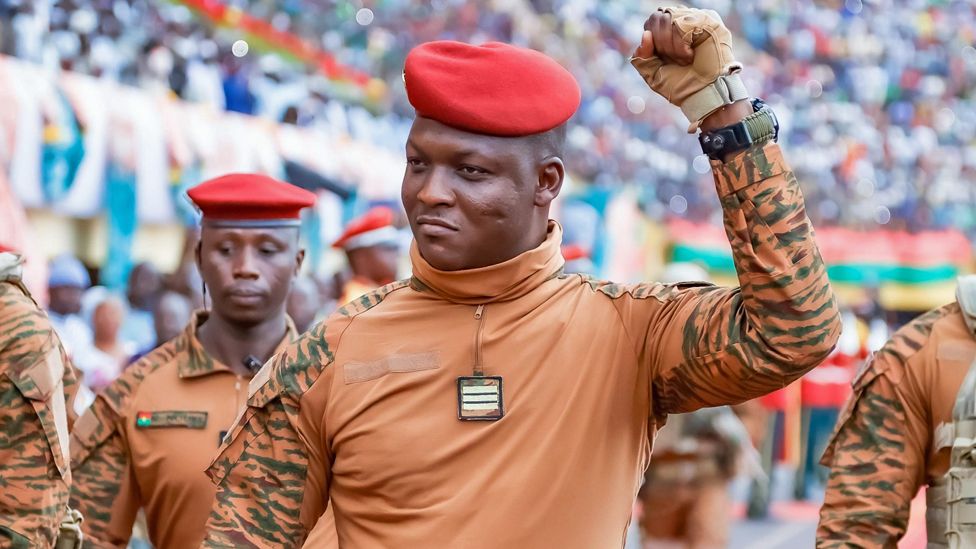Capt Ibrahim Traoré: Why Burkina Faso’s junta leader has captured hearts and minds around the world
At 37, Captain Ibrahim Traoré has emerged as a compelling figure in Burkina Faso, known for his dynamic leadership and commitment to anti-imperialist ideals. Since taking power through a coup in 2022, he has cultivated a strong persona as a pan-Africanist, aiming to liberate his country from Western influence and neo-colonialism.
This message resonates widely across Africa, drawing comparisons to celebrated leaders like Thomas Sankara, Burkina Faso’s revolutionary icon. “Traoré’s impact is substantial,” notes Beverly Ochieng, a senior researcher at Control Risks. She adds that many Africans are re-evaluating their relationships with the West, questioning the persistent poverty that looms despite the continent’s abundant resources.
Shift in Alliances
Upon seizing control, Traoré’s administration pivoted from France, Burkina Faso’s former colonial power, to establish a robust partnership with Russia. This alliance resulted in the deployment of Russian paramilitary forces and a series of left-leaning economic reforms, including the inception of a state-run mining enterprise that demands a 15% stake from foreign firms in their operations in Burkina Faso.
In late April, the Russian mining firm Nordgold received a license for its latest investment in the local gold sector. Traoré’s government has ambitions to construct a national gold refinery and establish national reserves, heralding a significant shift in the management of Burkina Faso’s mineral resources.
| Policy Initiative | Description | Impact |
|---|---|---|
| Mining Nationalization | Nationalizing foreign-owned gold mines | Bolstered national revenue and local ownership |
| State-Owned Mining Company | Implemented a 15% stake for the state in foreign mining operations | Enhanced local economic stake and skill transfer |
| Gold Refinery Project | Construction of the first national gold refinery | Potential for increased revenue and processing capacity |
However, tensions with Western firms continue to escalate, as evidenced by the Australian company Sarama Resources initiating arbitration against Burkina Faso after the cancellation of its exploration license. Furthermore, the junta indicated plans to take control of additional foreign-owned mines, illustrating its intent to prioritize national interests.
A New Kind of Leadership
Enoch Randy Aikins from the Institute for Security Studies observes that Traoré’s radical reforms have garnered him considerable admiration, branding him arguably the continent’s most popular leader. The escalating support for military-led governance permeates many African nations, reflecting a noticeable decline in faith in Western-style democracy as it fails to address pressing socio-economic issues, particularly among the youth who constitute a significant demographic in Burkina Faso.
Traoré notably gained prominence at the Russia-Africa summit in 2023, captivating the audience with a rallying cry against Western interference. His attendance at recent commemorations in Russia further solidified his image as a leader who seeks to unify around a common colonial struggle.
Despite facing challenges in addressing a decade-long Islamist insurgency and curtailing dissent within his regime, he exerts a magnetic hold on the populace. Observers note his relatable military image and articulate public speaking skills, contributing to his growing appeal, especially among the young population.
As Traoré continues to navigate the complexities of governance, with trends leaning toward more authoritarian rule, his future will likely depend on addressing national security concerns while fostering economic stability and public support. The coming years will reveal whether his revolutionary fervor can translate into sustainable change for Burkina Faso and influence across the African continent.


